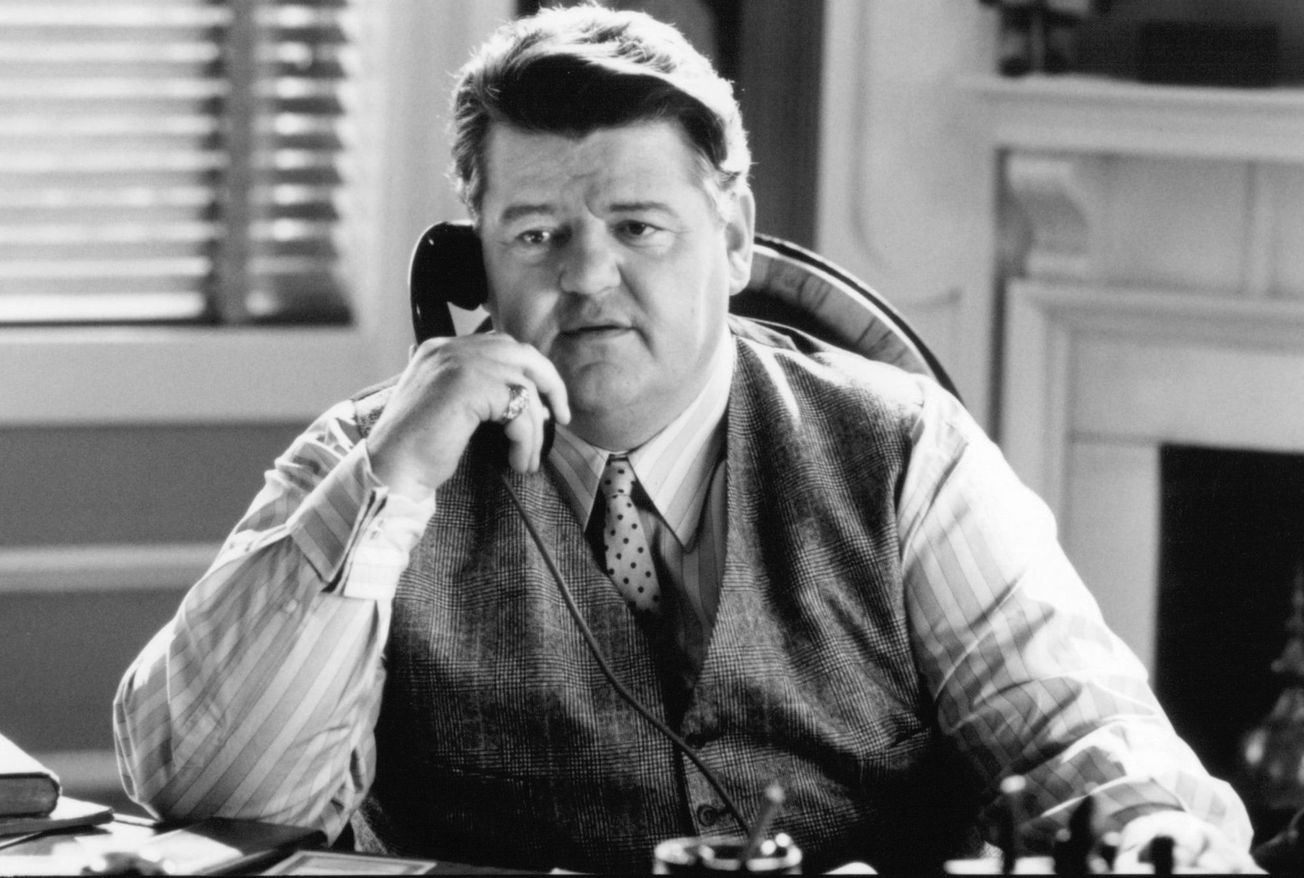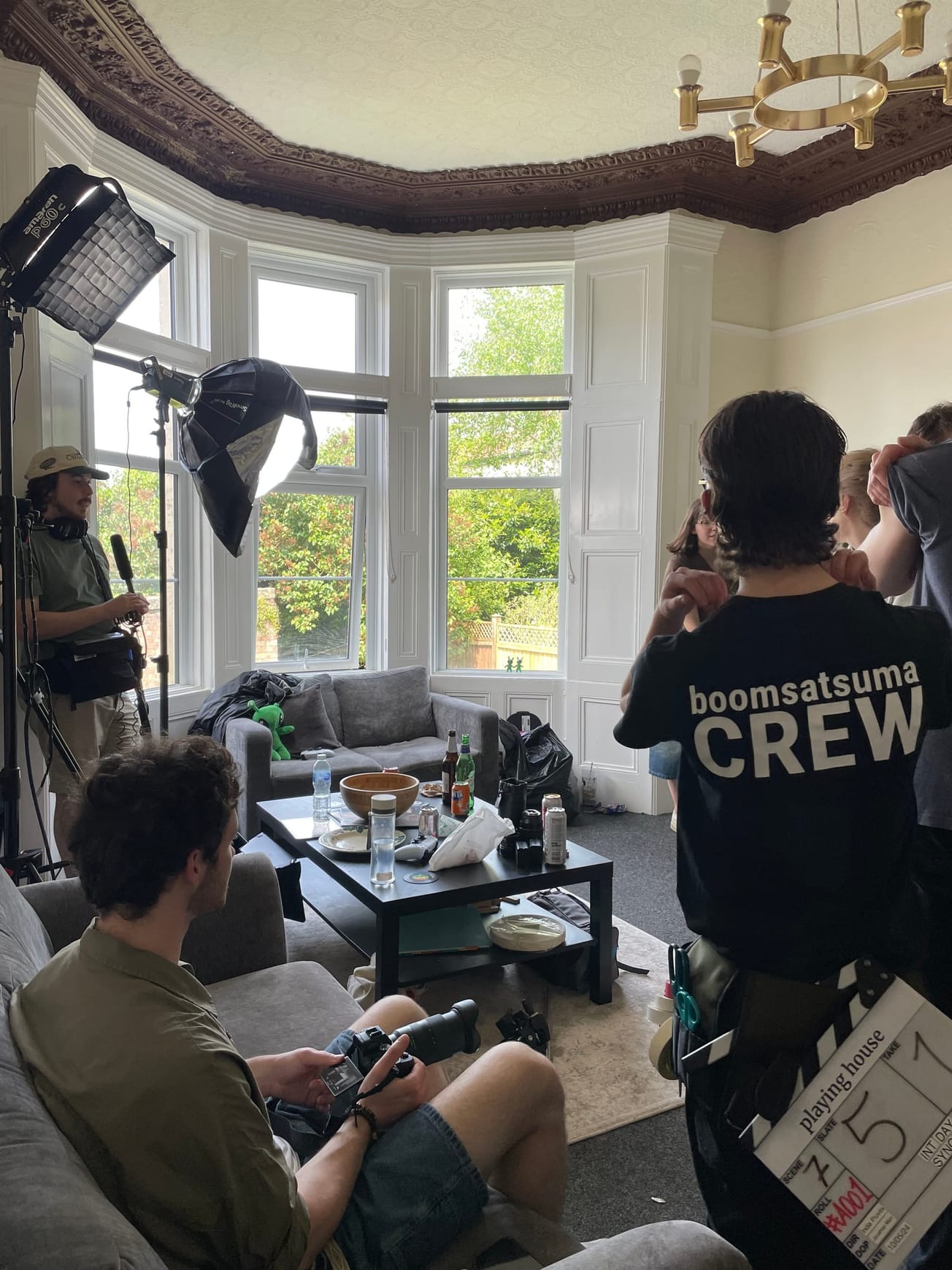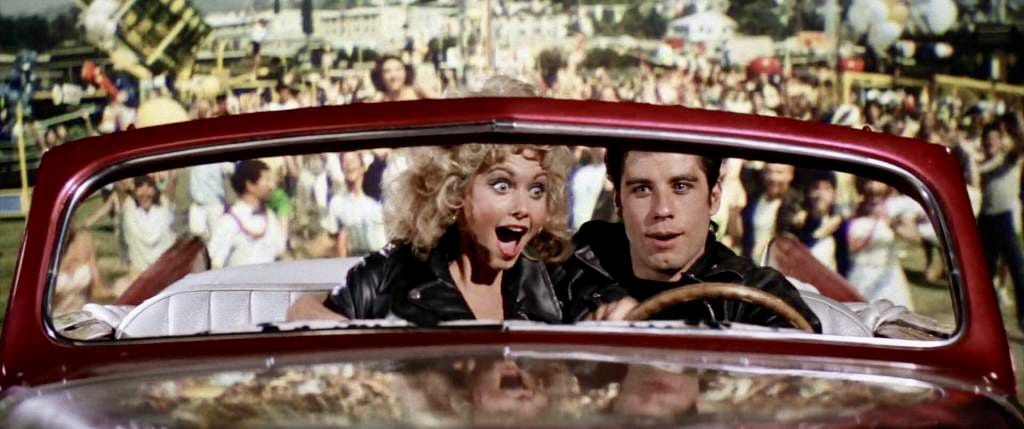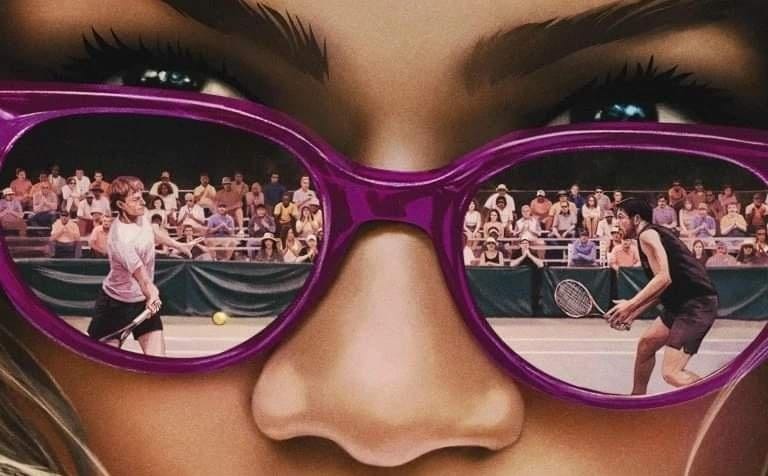By Esia Forsyth, Third Year, English
Having passed away on October 14th, 2022, at the age of 72, Robbie Coltrane leaves behind a rich cinematic legacy that audiences will continue to adore for decades to come. The actor was best known for his role as Hagrid in the Harry Potter franchise, yet he also portrayed many other larger-than-life characters beyond the wizarding world. In memory of his achievements, recent days have seen a flood of tributes and statements of admiration.
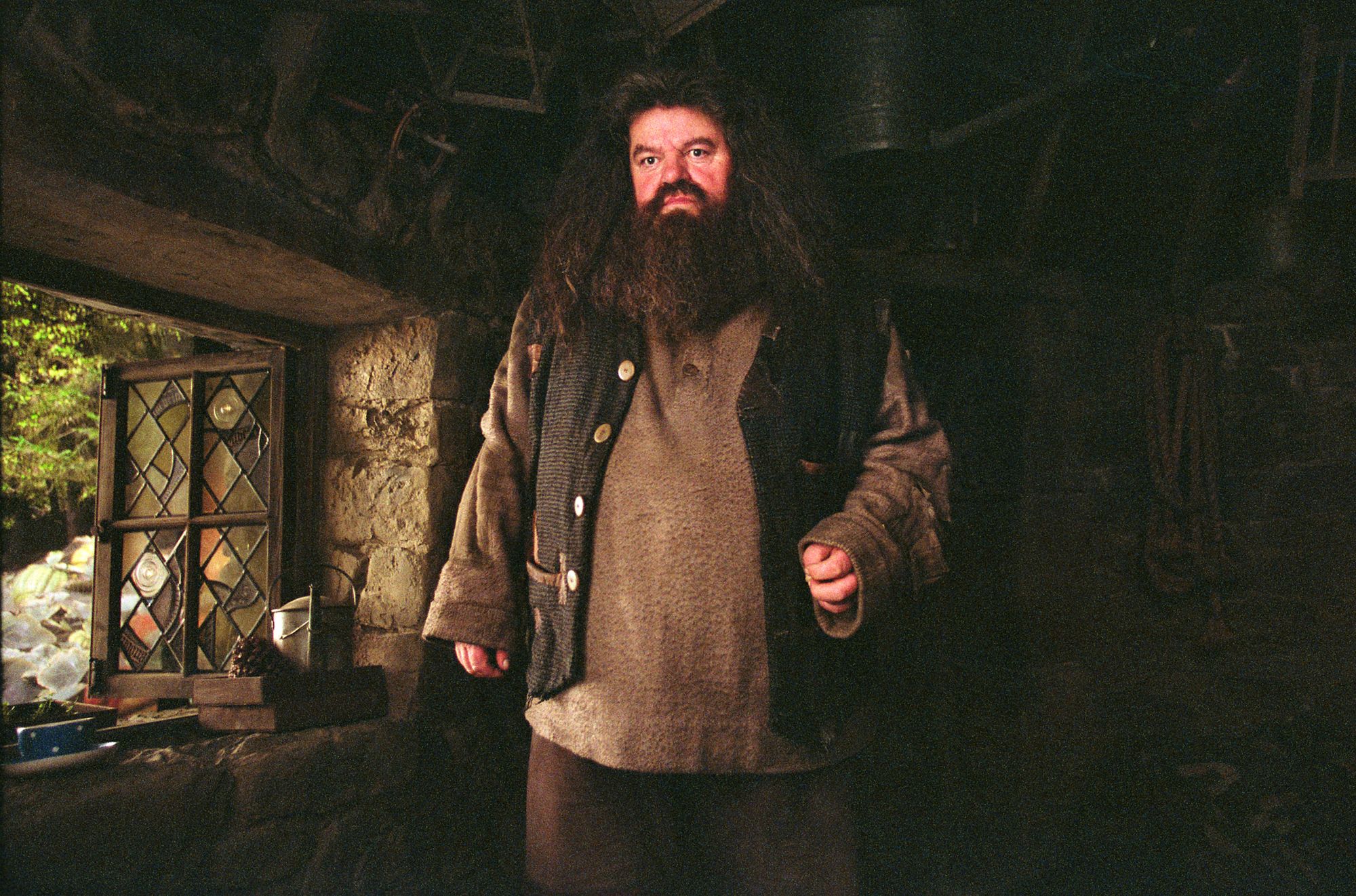
Thinking about Robbie Coltrane, I remember early English classes in which we learned, for the first time, about metaphors and similes. Having been handed extracts from Harry Potter and The Philosophers Stone, Hagrid, we were told, had ‘hands the size of dustbin lids and his feet in their leather boots were like baby dolphins’.
‘Why dolphins?’ we asked. ‘Of all the animals to compare his size to, why are dolphins the simile of choice?’.
‘Because’, came the reply, ‘we must know, from the very start, that Hagrid is friendly.’
Friendly.
An insignificant detail, perhaps, to some, but as the late Coltrane’s warmth both on sets and screens is accoladed across social media, it is clear the attribute of ‘friendliness’ resonated clearly with Hagrid’s future actor, Robbie Coltrane.
In a world of magical films depicting the joy and wonder of those who are ‘different’, stories in which outcasts become heroes and love is the ultimate power, Robbie Coltrane saw the importance of a character’s ‘friendliness’.
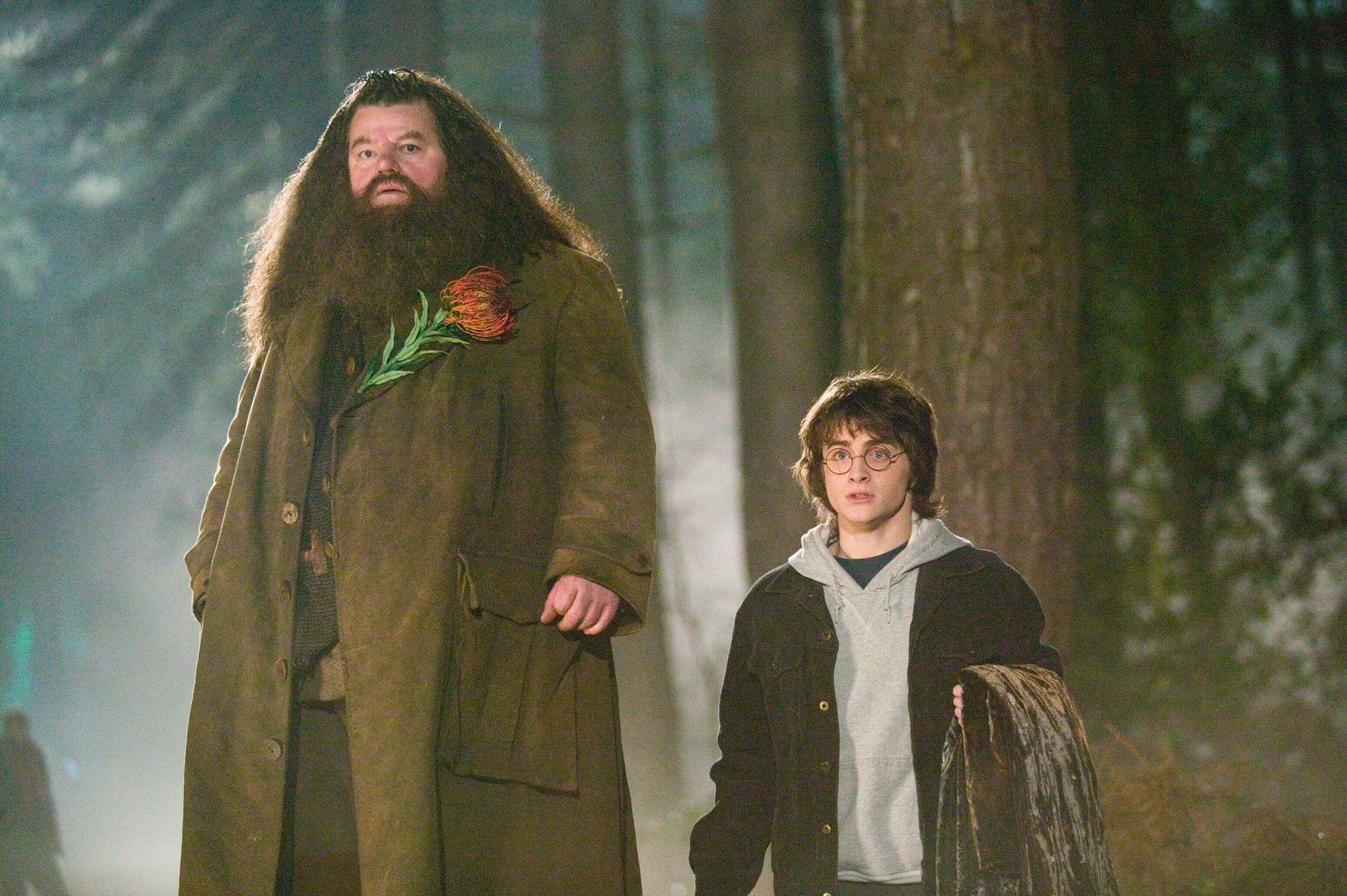
A Scottish household name, Coltrane was much beloved for a number of attributes, namely his staunch defence of and kinship toward the ‘downtrodden’ that translated into onscreen roles.
Expertly portraying a closeted gay man in 1980’s quasi-historical period drama, Caravaggio (1986), as well as unashamedly cross-dressing for the role of gangster turned nun in the 1990 cult classic Nun on the Run, the actor began his career confident in challenging the status quo.
Nicknamed in the ’90s as ‘Red Robbie’ for outspoken anti-conservative views, Coltrane was never afraid to risk popular opinion in the name of social justice.
Reverberating through the outpour of tributes across the globe, there seems to be a common theme to the praise of Coltrane; alongside his political activism often cited is the depth of his talent.
Looking back upon his career, so often Coltrane has played both the entertainer and the serious actor, adopting humorous roles yet unafraid to dive into darker and more complex stories.
First Minister Nicola Sturgeon praised this range as flitting ‘from brilliant comedy to hard-edged drama’.
Born in Scotland, his love of left-wing causes was fostered in schoolboy class wars as he started secondary school at Glenalmond College, a prestigious independent school against which he rebelled. ‘I didn’t accept the hierarchy, basically.’ He told The Guardian in 2012.
Born as Anthony McMillan and the son of a doctor and teacher, he rejected this middle-class background, instead identifying with working-class Glaswegians. In terms of subverting the school’s orthodoxy, he seemed to take great joy in upsetting the applecart.
When asked why he went to such lengths of petty rebellion as hanging perfect gowns at the top of the school’s clocktower, the explanation came: ‘because it made no sense. What do you mean you can’t walk past a prefect with your f*cking jacket undone?’
This coarse satire epitomises Coltrane’s signature comedy with a hint of no-nonsense that stretched beyond school experiences and into some of his greatest roles. Before the days of Hogwarts and amidst a well-publicised struggle with alcoholism, his big break had, arguably, come from the 1986 Neil Jordan film Mona Lisa, alongside Bob Hoskins. It was for the next few years as his career teetered back and forth between comedy and drama, and Coltrane’s tongue-in-cheek humour became expertly balanced against his more intimidating edge.
His reputation in the UK was sealed as he scored the part of chain-smoking forensic psychologist Fitz in the much-beloved British series, Cracker (1993-1996).
Electrified by Coltrane’s dry humour with ever so slightly ominous undertones, his performance was lapped up by the British public, going on to win three consecutive BAFTAs for the role.
Not unlike Robbie, the character of Fitz was addicted to alcohol, sarcastic, periodically foul-mouthed and ever so slightly manic. It was, perhaps, the gritty edge to Coltrane’s portrayal that allowed audiences to connect with him so deeply; the actor never shied away from an honest portrayal of self.
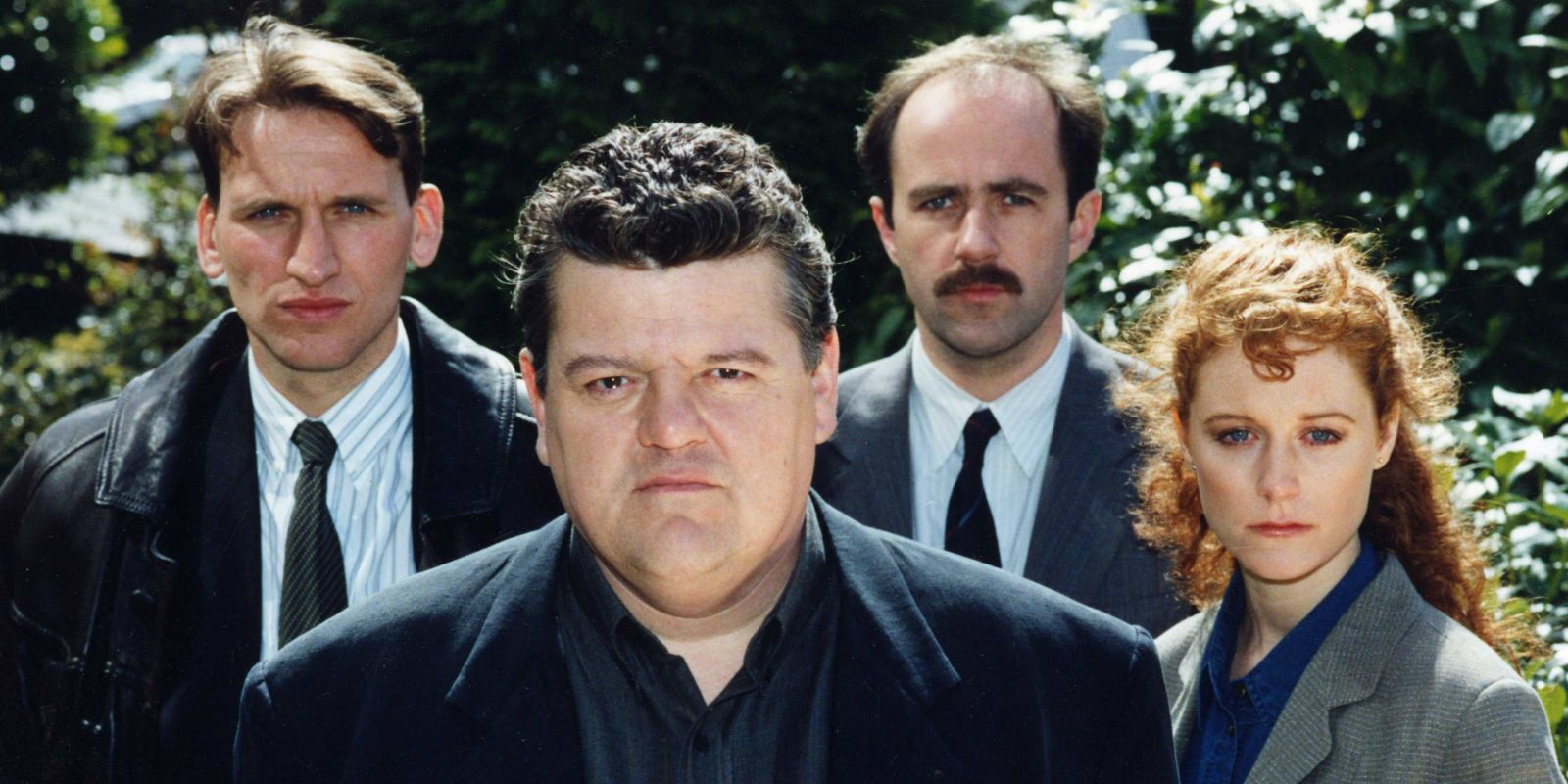
An ultimate advocate for the voiceless, Coltrane was unafraid to venture into the darker echelons of both film, and his own double-edged talent. He returned from his break in television in 2016 for the Channel 4 Drama National Treasure, based on real-life events, in which Coltrane portrayed a comedian accused of raping a 15-year-old girl several years earlier.
In interviews about the programme, he spoke of how ‘appalled’ he was by the allegations of historical abuse that surrounded public figures and were all too often buried.
It was not until he landed the performance of KGB man Valentin Zukovsky in the Bond film Goldeneye (1995), that Coltrane reached spheres of international recognition.
After managing to regain control over his alcoholism in 1999 following the birth of his two children with sculptor, Rhona Gemmel, his glowing reputation saw Coltrane personally selected by J.K Rowling for the lucrative role of Hagrid.
Said to have only taken the role of the giant after his children urged him to, Coltrane’s adoption of the character was focused on childhood inspiration from the very beginning.
Earlier this year, Coltrane appeared in Harry Potter 20th Anniversary: Return to Hogwarts (2022) on HBO Max and spoke with nostalgia about the ‘decade of [his] life’ spent making the Harry Potter films.
“The legacy of the movies’, he observed, ‘is that my children's generation will show them to their children so that you could be watching it in 50 years' time, easy. I'll not be here, sadly,” he said with a laugh. Then, with a mischievous look in his eye, he added, “but Hagrid will. Yes.”
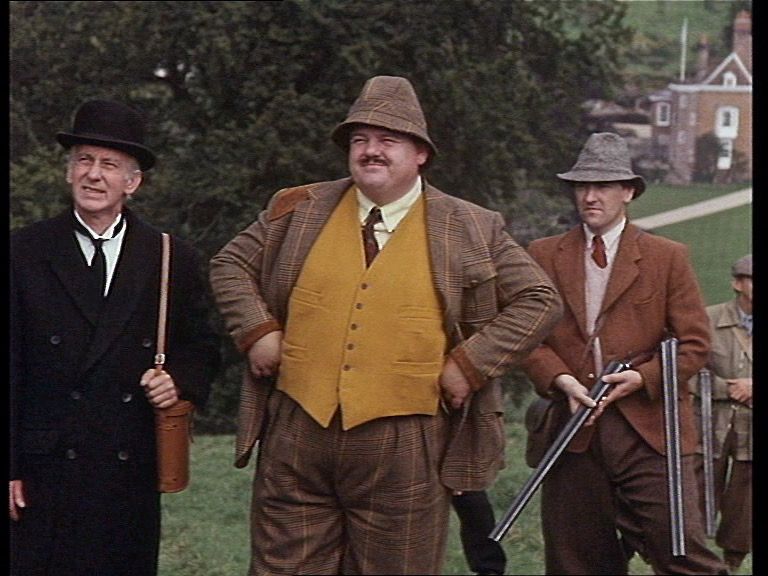
So what can we take away when we reflect on such an astounding and diverse talent? A man concerned with legacy, but only in terms of what that legacy can provide to others. An actor unafraid to face the uncomfortable in the name of the disadvantaged whilst simultaneously always ready to provide them with laughter.
Robbie Coltrane, a man who so embodied being ‘friendly’ in all areas of life.
Whilst each across the country takes a moment to think back upon how his roles have played into their own lives, I will forever be glad to remember his feet as the size of ‘baby dolphins’.
Featured Image: American Zoetrope, courtesy of IMDB
Which one of Robbie Coltrane's performances is your favourite?

